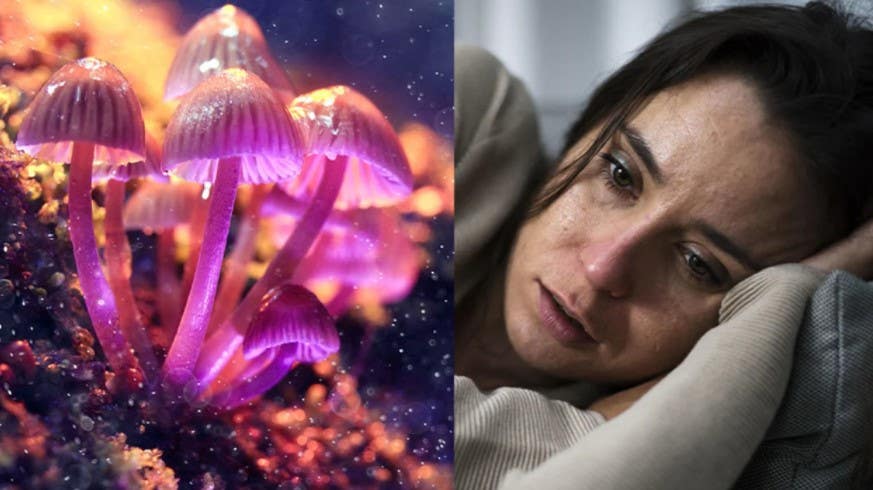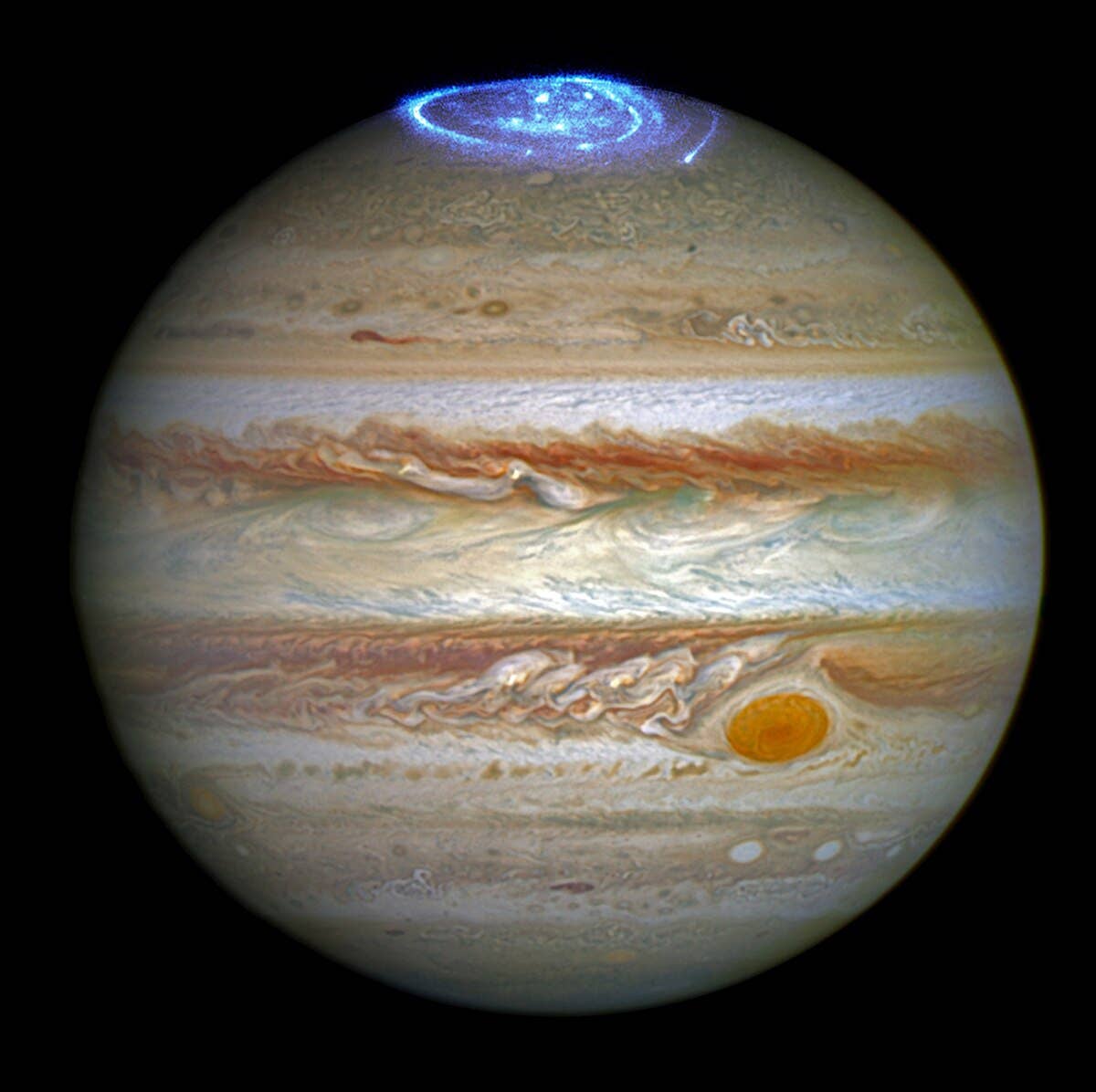Magic mushrooms found safe and effective in the treatment of mental health conditions
According to the World Health Organization, about 450 million people worldwide have a mental health disorder, across all demographics.

[Jan 13, 2022: Eve Herold and King's College London]
Magic mushrooms, in conjunction with a psychotherapist's treatment, may be helpful in treating addiction, depression, anxiety, and other mental health ailments. (CREDIT: © kichigin19 and Rawpixel.com/Adobe)
Mental illness is a dark undercurrent in the lives of tens of millions of Americans. According to the World Health Organization, about 450 million people worldwide have a mental health disorder, which cut across all demographics, cultures, and socioeconomic classes.
The U.S. National Institute on Mental Health estimates that severely debilitating mental health disorders cost the U.S. more than $300 billion per year, and that's not even counting the human toll of broken lives, devastated families, and a health care system stretched to the limit.
However, one area of research seems to herald the first major breakthrough in decades — hallucinogen-assisted psychotherapy. Drugs like psilocybin (obtained from "magic mushrooms"), LSD, and MDMA (known as the club drug, ecstasy) are being tested in combination with talk therapy for a variety of mental illnesses. These drugs, administered by a psychotherapist in a safe and controlled environment, are showing extraordinary results that other conventional treatments would take years to accomplish.
In fact, new research from the Institute of Psychiatry, Psychology, & Neuroscience (IoPPN) at King’s College London, in partnership with COMPASS Pathways, has established that psilocybin can be safely administered at doses of either 10mg or 25mg to up to six participants simultaneously.
The research, published in The Journal of Psychopharmacology, is an essential first step in demonstrating the safety and feasibility of psilocybin – a psychedelic drug isolated from the Psilocybe mushroom – for use within controlled settings alongside talking therapy as a potential treatment for a range of mental health conditions, including treatment-resistant depression (TRD) and PTSD.
The trial is the first of its kind to thoroughly investigate the simultaneous administration of psilocybin. 89 healthy participants with no recent (within 1 year) use of psilocybin were recruited. 60 individuals were randomly picked to receive either a 10mg or 25mg dose of psilocybin in a controlled environment. In addition, all participants were provided with one-to-one support from trained psychotherapists. The remaining 29 participants acted as the control group and received a placebo, also with psychological support.
Related News
Participants were closely monitored for six to eight hours following administration of psilocybin and then followed up for 12 weeks. During this time, they were assessed for a number of possible changes, including sustained attention, memory, and planning, as well as their ability to process emotions.
Throughout the study, there were no instances of anyone withdrawing from the study due to an adverse event, and no consistent trends to suggest that either of the psilocybin doses had any short- or long-term detrimental effects on participants.
Professor Guy Goodwin, Chief Medical Officer, COMPASS Pathways, said: “This study was an early part of our clinical development programme for COMP360 psilocybin therapy. It explored the safety and feasibility of simultaneous psilocybin administration, with 1:1 support, in healthy participants, and provided a strong foundation to which we have now added positive results from our phase IIb trial in 233 patients with TRD, and from our open-label study of patients taking SSRI antidepressants alongside psilocybin therapy. We are looking forward to finalising plans for our phase III programme, which we expect to begin in Q3 2022.”
The investigators have since completed Phase II of the study, which has explored the efficacy and safety of psilocybin in people living with TRD and PTSD, and are analysing the data.
How We Got Here
According to researchers Sean Belouin and Jack Henningfield, the use of psychedelic drugs has a long and winding history. It's believed that hallucinogenic substances have been used in healing ceremonies and religious rituals for thousands of years. Indigenous people in the U.S., Mexico, and Central and South America still use distillations from the peyote cactus and other hallucinogens in their religious ceremonies. And psilocybin mushrooms, also capable of causing hallucinations, grow throughout the world and are thought to have been used for millennia.
But psychedelic drugs didn't receive much research until 1943, when LSD's psychoactive effects were discovered by chemist Albert Hoffman. Hoffman tested the compound he had discovered years earlier on himself and found that the drug had profound mind-altering effects. He made the drug available to psychiatrists who were interested in testing it out as an adjunct to talk therapy. There were no truly effective drugs at the time for mental illnesses, and psychiatrists early on saw the possibility of psychedelics providing a kind of emotional catharsis that might represent therapeutic breakthroughs for many mental conditions.
During the 1950s and early 1960s, psychedelic drugs saw an increase in use within psychology, according to a 2018 article in Neuropharmacology. During this time, research on LSD and other hallucinogens was the subject of over 1,000 scientific papers, six international conferences, and several dozen books. LSD was widely prescribed to psychiatric patients, and by 1958, Hoffman had identified psilocybin as the hallucinogenic in "magic mushrooms," which was also administered. By 1965 some type of hallucinogenic had been given to more than 40,000 patients.
Then came a sea change. Psychedelic drugs caught the public's attention and there was widespread experimentation. The association with Hippie counterculture alarmed many and led to a legal and cultural backlash that stigmatized psychedelics for decades to come. In the mid-1960s, psychedelics were designated Schedule 1 drugs in the U.S., meaning they were seen as having "no accepted medical use and a high potential of abuse." Schedule 1 also implied that the drugs were more dangerous than cocaine, methamphetamine, Vicodin, and oxycodone, a perception that was far from proven but became an institutionalized part of drug enforcement. Medical use ceased and research dwindled down to close to zero.
For years, research into hallucinogenic-assisted therapy was basically dormant, until the 1990s when interest started to revive. In the 2000s, the first modern clinical trials of psilocybin were done by Francisco Moreno at the University of Arizona and Matthew Johnson at Johns Hopkins. Scientists in the 2010s, including Robin Carhart-Harris, started studying the use of psychedelics in the treatment of major depressive disorder (MDD).
In small trials with these patients, results showed significant and long-term improvement (for at least six months) after only two episodes of psilocybin-assisted therapy. In several studies, the guided experience of administering one of the psychedelic drugs along with psychotherapy seemed to result in marked improvement in a variety of disorders, including depression, anxiety, PTSD, and addiction.
The drugs allowed patients to experience a radical reframing of reality, helping them to become "unstuck" from the anxious and negative tape loops that played in their heads. According to Michael Pollan, an American author and professor of journalism who wrote the book, "How to Change Your Mind: What the New Science of Psychedelics Teaches Us About Consciousness, Dying, Addiction, Depression and Transcendence," psychedelics allow patients to see their lives through a kind of wide angle, where boundaries vanish and they're able to experience "consciousness without self." This perspective is usually accompanied by profound feelings of oneness with the universe.
Pollan likens the effect to a fresh blanketing of snow over the deep ruts of unproductive thinking, which characterize depression and other mental disorders. Once the new snow has fallen, the ruts disappear and a new path can be chosen. Relief from symptoms comes immediately, and in numerous studies, is sustained for months.
Some of the most influential studies have focused on testing the use of psilocybin to treat end-of-life anxiety in patients diagnosed with a terminal illness. In 2016, Stephen Ross and colleagues tested a single dose of psilocybin on 29 subjects with end-of-life anxiety due to a terminal cancer diagnosis. A control group received a niacin pill. The researchers reported that of the 29 receiving psilocybin, all of the patients had "immediate, substantial, and sustained clinical benefits," even after six months.
In spite of growing evidence for the safety and efficacy of psychedelic-assisted psychotherapy, the practice has major hurdles to cross on its quest for FDA approval. The National Institutes of Health is not currently supporting any clinical trials and the research relies on private sources of funding, often with small research organizations that cannot afford the high cost of clinical trials.
Given the controversial nature of the drugs, researchers in psychedelic-assisted therapies may be cautious about publicity. Leapsmag reached out to several leaders in the field but none agreed to an interview.
Looking Ahead
Still, interest is building in the combination of psychedelic drugs and psychotherapy for treatment-resistant mental illnesses. Two months ago, Johns Hopkins University launched a new psychedelic research center with an infusion of $17 million from private investors. The center will focus on psychedelic-assisted therapies for opioid addiction, Alzheimer's disease, PTSD and major depression, to name just a few. Currently, of 51 cancer patients enrolled in a Hopkins study, more than half reported a decrease in depression and anxiety after receiving therapy with psilocybin. Two thirds even claimed that the experience was one of the most meaningful of their lives.
It is not unheard of for Schedule 1 drugs to make their way into medical use if they're shown to provide a bonafide improvement in a medical condition through well-designed clinical trials. MDMA, for example, has been designated a Breakthrough Therapy by the FDA as part of an Investigational New Drug Application. The FDA has agreed to a special protocol assessment that could speed up phase three clinical trials. The next step is for the data to be submitted to the FDA for an in-depth regulatory review. If the FDA agrees, MDMA-assisted therapy could be legalized.
Robin Carhart-Harris believes the first drug that will receive FDA clearance is psilocybin, which he speculates could become legal in the next five to ten years. However, the field of psychedelic-assisted therapy needs more and larger clinical trials, preferably with the support of the NIH.
As Rucker and colleagues noted, the scientific literature bends toward the theme that the drugs are not necessarily therapeutic in and of themselves. It's the use of hallucinogens within a "psychologically supportive context" with a trained expert that's helpful. It's currently unknown how many users of recreational drugs are self-medicating for depression, anxiety, or other mental illnesses. But without the guidance of a knowledgeable psychotherapist, those who are self-medicating may not be helping themselves at all.
Will the positive buzz around psychedelics persuade the NIH to provide the millions of dollars needed to push the field forward? Given the changing climate in public opinion around these drugs and the need for breakthroughs in mental health therapies, it's possible that in the foreseeable future, this bold new therapy will become part of the mental health arsenal.
For more science and technology stories check out our New Discoveries section at The Brighter Side of News.
Note: Eve Herold is a science writer specializing in issues at the intersection of science and society. She has written and spoken extensively about stem cell research and regenerative medicine and the social and bioethical aspects of leading-edge medicine. Her 2007 book, Stem Cell Wars, was awarded a Commendation in Popular Medicine by the British Medical Association. Her 2016 book, Beyond Human, has been nominated for the Kirkus Prize in Nonfiction, and a forthcoming book, Robots and the Women Who Love Them, was released in 2019.
Like these kind of feel good stories? Get the Brighter Side of News' newsletter.
Tags: #New_Discoveries, #Mental_Health, #Psychadelic_Drugs, #Science, #Medical_News, #Mushrooms, #Research, #The_Brighter_Side_of_News
Joseph Shavit
Head Science News Writer | Communicating Innovation & Discovery
Based in Los Angeles, Joseph Shavit is an accomplished science journalist, head science news writer and co-founder at The Brighter Side of News, where he translates cutting-edge discoveries into compelling stories for a broad audience. With a strong background spanning science, business, product management, media leadership, and entrepreneurship, Joseph brings a unique perspective to science communication. His expertise allows him to uncover the intersection of technological advancements and market potential, shedding light on how groundbreaking research evolves into transformative products and industries.



